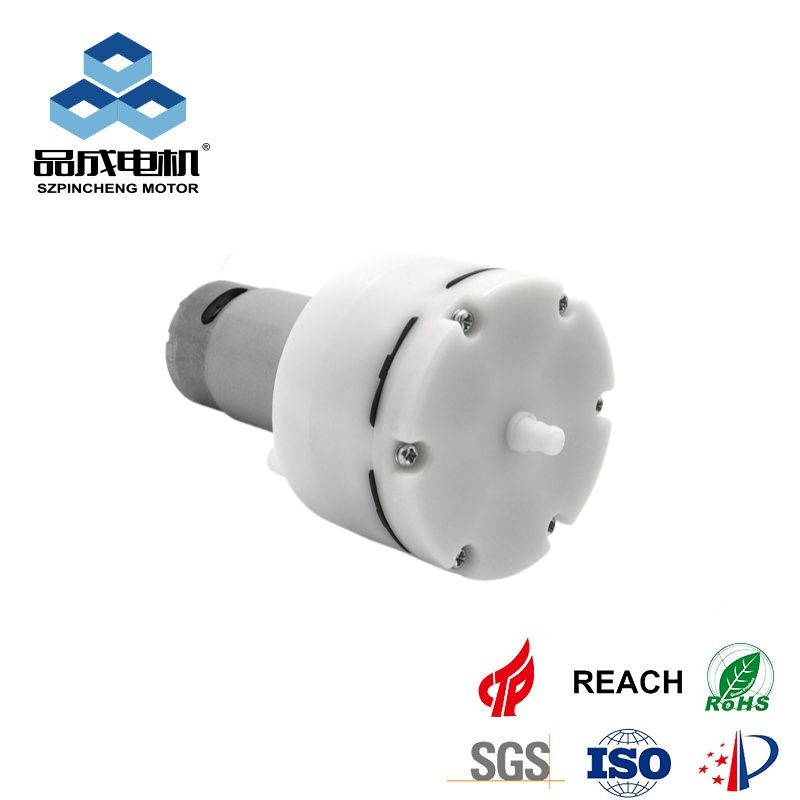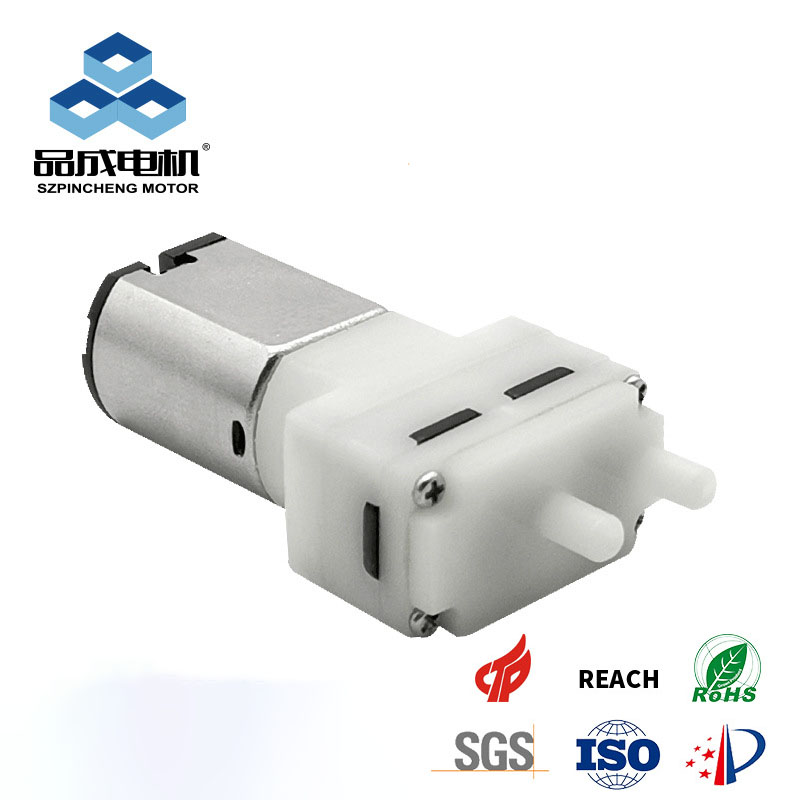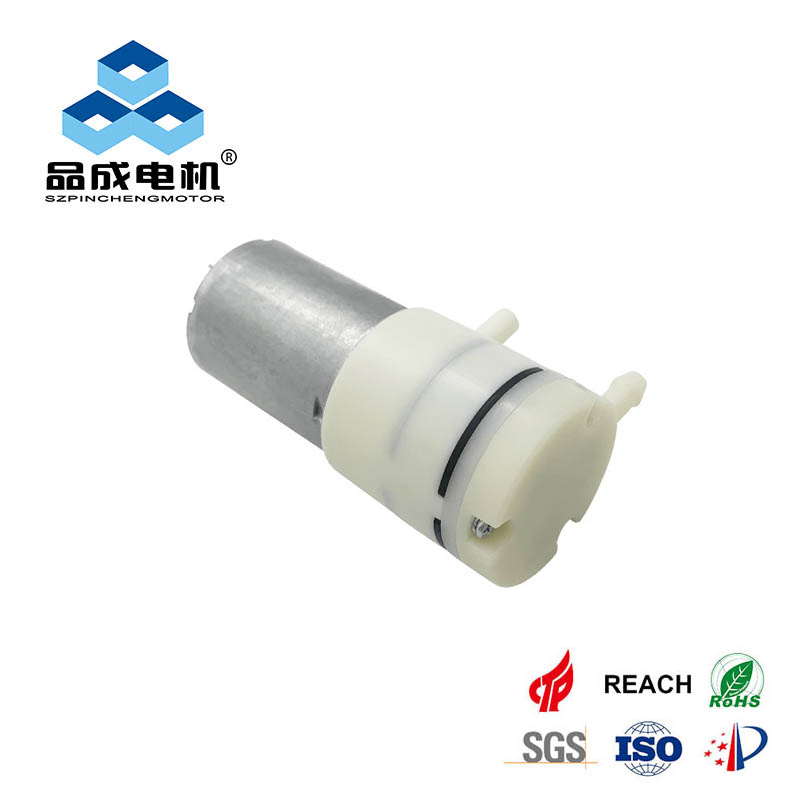Can Micro Vacuum Pumps Handle Water Vapor and Humid Air? Understanding the Limitations
When designing pneumatic systems or fluid handling applications, a common question arises: Can micro vacuum pumps effectively handle water vapor or humid air? This is particularly relevant for users working with DC vacuum pump systems in laboratory settings, medical devices, or industrial applications where moisture presence is inevitable.
The straightforward answer is: Most standard micro vacuum pumps are not designed to handle pure water vapor or consistently humid air effectively. Understanding why requires examining both the physical properties of water vapor and the operational limitations of vacuum pump technology.
The Science Behind Vacuum Pumps and Water Vapor
Phase Change Complications
Water vapor presents unique challenges for micro vacuum pump systems due to phase change dynamics. When humid air is compressed within the pump chamber, the temperature increase can cause vapor to condense into liquid water. This phase transition creates several operational issues:
1、Liquid Accumulation: Water droplets form inside pump mechanisms
2、Corrosion Risk: Internal components become susceptible to rust and degradation
3、Performance Loss: Liquid water disrupts the compression cycle and reduces efficiency
Vapor Pressure Limitations
The saturation vapor pressure of water decreases dramatically under vacuum conditions. At 20°C and atmospheric pressure, air can hold approximately 17g of water vapor per cubic meter. Under vacuum conditions, this capacity reduces significantly, forcing condensation to occur.
Pump Technology Variations and Moisture Handling
Diaphragm Pump Limitations
Most low power vacuum pump units utilizing diaphragm technology face significant challenges with moisture:
1、Material Compatibility: Standard diaphragm materials may degrade when exposed to water vapor
2、Corrosion Susceptibility: Internal metal components risk oxidation
3、Performance Impact: Even small amounts of moisture can reduce vacuum level and flow rate
Liquid Ring Pump Alternatives
For applications requiring consistent handling of humid air or vapors, liquid ring vacuum pumps offer superior performance:
1、Water-tolerant Design: Uses sealing liquid to handle moist media
2、Reduced Contamination Risk: Continuous fluid flow minimizes residue buildup
3、Higher Maintenance Requirements: Regular fluid changes and more complex operation
Practical Application Considerations
Intermittent vs. Continuous Operation
The operational mode significantly impacts moisture handling capability:
1、Intermittent Use: Brief exposure to humid air may be manageable with proper drying cycles
2、Continuous Operation: Sustained exposure to moisture typically requires specialized pump designs
Temperature Management
Controlling temperature gradients helps manage condensation:
1、Maintain Above Dew Point: Keep pump temperature above the dew point of the processed air
2、Heated Enclosures: Prevent condensation formation in critical components
3、Thermal Insulation: Reduce heat transfer and temperature fluctuations
Protection Strategies for Standard Vacuum Pumps
When using standard 12v vacuum pump units in environments with potential moisture exposure:
Pre-filtration Systems
1、Desiccant Dryers: Remove moisture before air enters pump
2、Coalescing Filters: Capture liquid droplets and aerosols
3、Vapor Traps: Prevent water vapor from reaching pump mechanism
Operational Best Practices
1、Regular Maintenance: Frequent inspection for moisture accumulation
2、Drainage Provisions: Install moisture traps with easy drainage access
3、Purge Cycles: Use dry air purging after exposure to humid conditions
Specialized Solutions for Humid Applications
Corrosion-Resistant Materials
Select pumps featuring:
1、Stainless Steel Components: Resist oxidation and corrosion
2、PTFE Diaphragms: Provide excellent chemical and moisture resistance
3、Composite Materials: Offer enhanced durability in humid environments
Modified Pump Designs
Some micro vacuum pump manufacturers offer:
1、Drainage Channels: Built-in pathways for liquid removal
2、Enhanced Sealing: Improved protection against moisture ingress
3、Coated Components: Protective coatings on vulnerable parts
Real-World Application Scenarios
Laboratory Environments
1、Vacuum Filtration: Use condensate traps and moisture separators
2、Freeze Drying: Requires specialized pumps designed for vapor handling
3、Environmental Chambers: Implement comprehensive moisture control systems
Industrial Applications
1、Food Packaging: Utilize moisture-resistant vacuum pump designs
2、Pharmaceutical Processing: Follow strict protocols for vapor handling
3、Chemical Processing: Select pumps specifically rated for vapor service
Maintenance and Longevity Considerations
Routine Inspection Points
1、Check for water accumulation in pump housing
2、Monitor for corrosion on internal components
3、Verify filter condition and replacement schedule
Performance Monitoring
1、Track vacuum level consistency
2、Monitor flow rate stability
3、Document maintenance interventions and outcomes
you like also all
Read More News
Post time: Oct-08-2025




